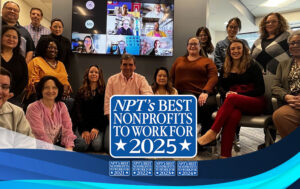Sarah Ford | April 2, 2013
Why Can’t We Sell Charity Like We Sell Perfume?
It’s time to change how society thinks about charity and social reform. The donating public is obsessed with restrictions—nonprofits shouldn’t pay executives too much, or spend a lot on overhead or take risks with donated dollars. It should be asking whether these organizations have what they need to actually solve problems. The conventional wisdom is that low costs serve the higher good. But this view is killing the ability of nonprofits to make progress against our most pressing problems. Long-term solutions require investment in things that don’t show results in the short term.
We have two separate rule books: one for charity and one for the rest of the economic world. The result is discrimination against charities in five critical areas.
>> Continue reading this Wall Street Journal story
Get Resources and Insights Straight To Your Inbox
Explore More Articles
Make the Holidays More Meaningful: Engage Your Team with Employee Giving Technology
The holiday season is a time for connection, gratitude, and giving back. For employers, it’s also an ideal moment to strengthen workplace culture, deepen employee…
Read ArticleLaunch a Turnkey Holiday Giving Campaign
Sign up by October 3, 2025 to launch your employee donation site in time for the holidays! Give employees a simple, meaningful way to make…
Read ArticleData Processor & Customer Service Representative, Charitable Funds Management Solutions
Reporting Structure: Director, CFMS Term: October 2025 to February 2026 Schedule: Full-Time; Monday-Friday up to 37.5 hours per week. Rate: $20 per hour Overview of…
Read ArticleGet Resources and Insights Straight To Your Inbox
Receive our monthly/bi-monthly newsletter filled with information about causes, nonprofit impact, and topics important for corporate social responsibility and employee engagement professionals, including disaster response, workplace giving, matching gifts, employee assistance funds, volunteering, scholarship award program management, grantmaking, and other philanthropic initiatives.




